Once living in isolation in the mountains and forests, Chut women used to only access information through word of mouth. Now, they have become the leaders of a silent "digital revolution", knowing how to use phones and go online to learn how to make a living, take care of their health, and raise their children. Their thinking has changed, their lives have improved, and from their stilt houses, they are writing a new story in the middle of the forest.
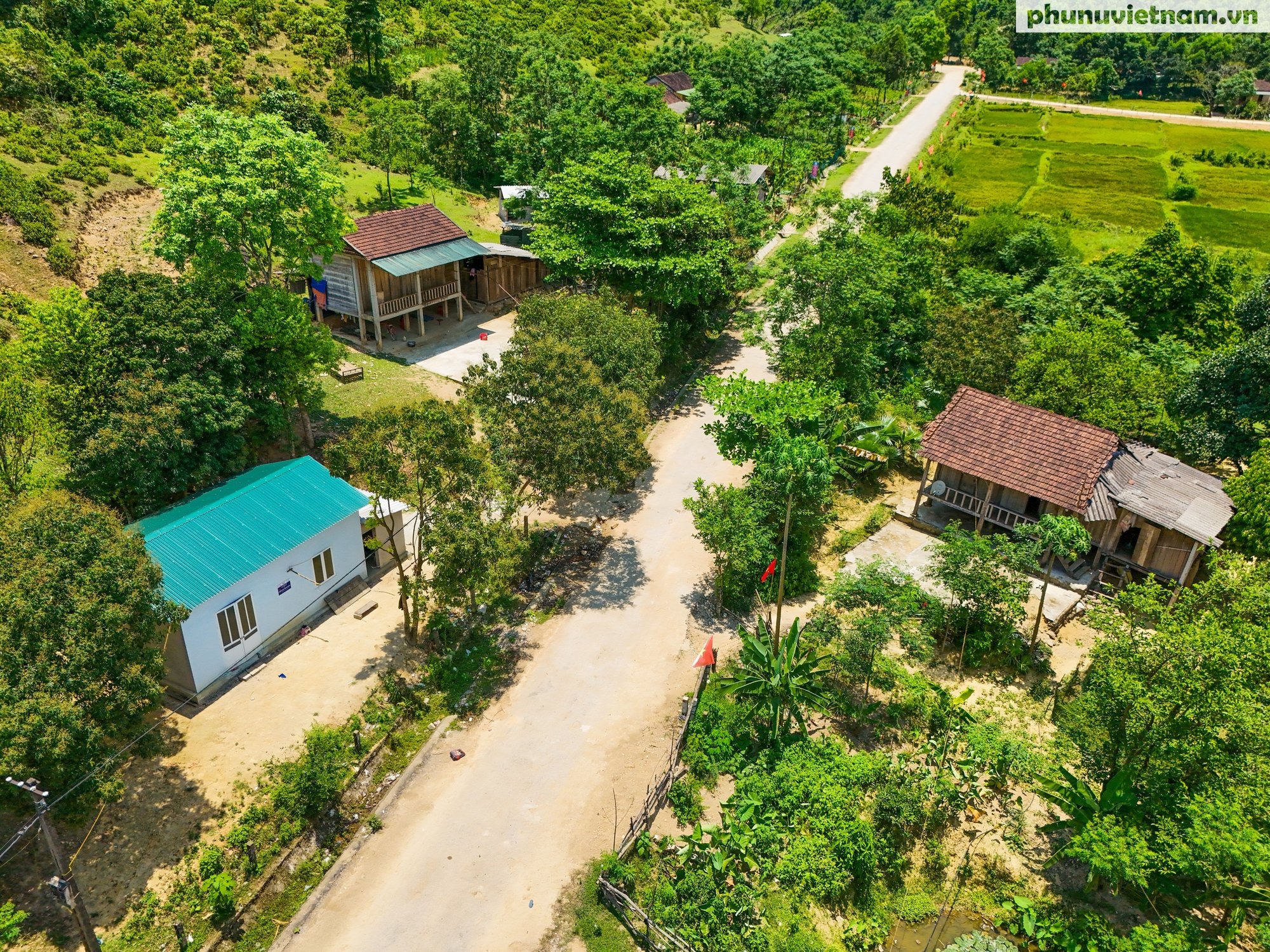
Rao Tre village (Huong Lien commune, Huong Khe district, Ha Tinh province), where Chut women used to live in isolation, is now gradually changing thanks to access to technology and digital information.
From a small phone, Chut women open the way to change their lives
Ms. Ho Xuan Hien (20 years old, from a near-poor household) is one of the pioneers in the journey of "digitalizing" life in Rao Tre village. With a gentle face and a bright smile, she tells the story of her introduction to a smartphone: "About 3-4 years ago, I started using a smartphone. At first, I only used it to play, listen to music, and surf Facebook for fun. But then, I gradually learned how to search for information, read news, or look up Google when I needed to know something."
Her initial curiosity led Ms. Hien to a vast world of information that she had never imagined before. Especially when she was pregnant and gave birth, her smartphone became an indispensable companion. "When I was pregnant, I often went online to learn about pregnancy care and child-rearing. When my child was sick, had a rash or had any problems, I also looked up Google to know how to handle it before taking him to the doctor. Thanks to smartphones, my life has changed a lot - I am more knowledgeable, have access to more information than my mother's time, when people only knew what was around the village," Ms. Hien shared, her voice full of excitement.
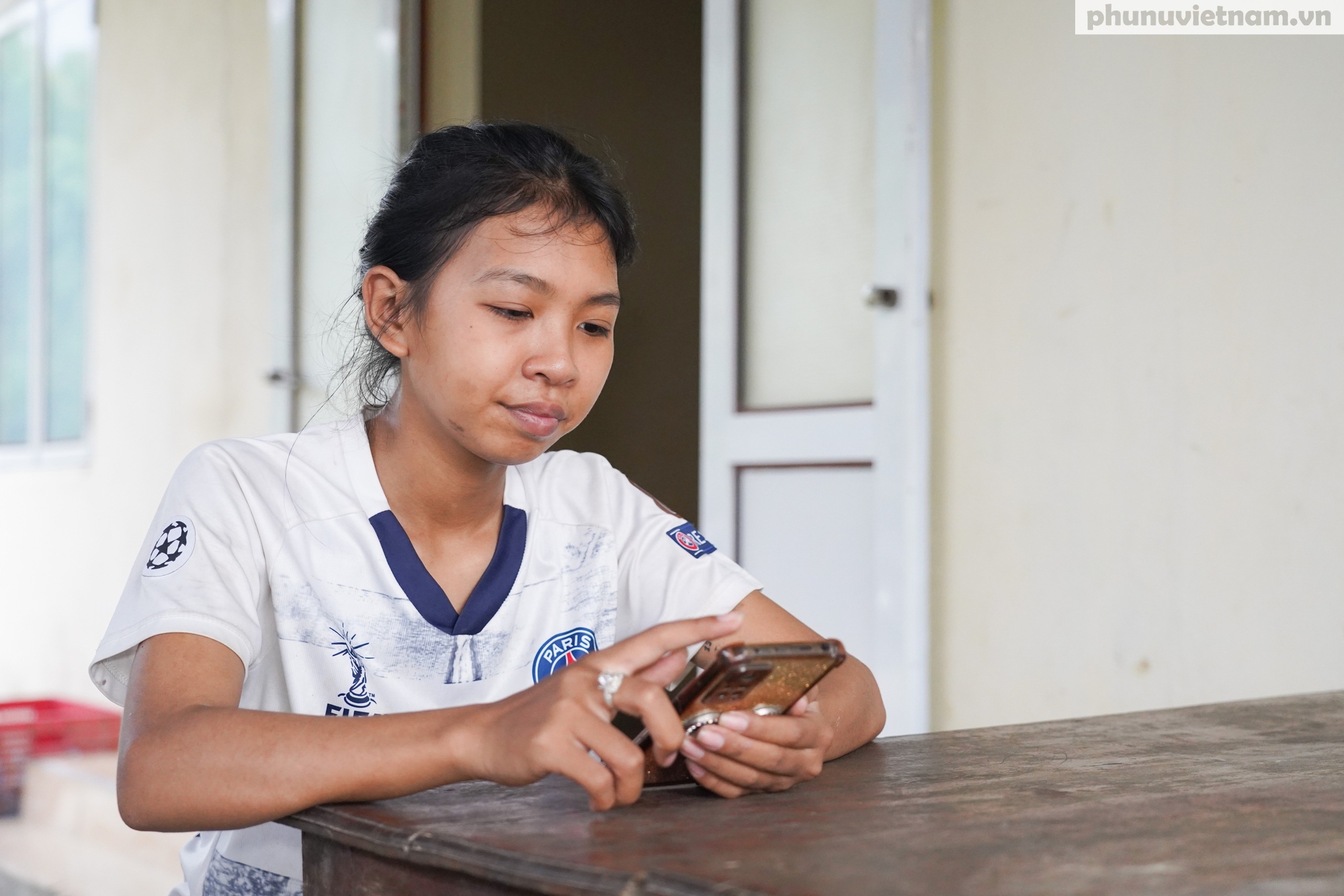
Ms. Ho Xuan Hien, 20 years old, Chut ethnic group in Rao Tre village, familiarizes herself with smartphones to search for information and learn how to take care of her family.
Ms. Hien’s story is not unique. Many other Chut women in Rao Tre village are also gradually realizing the great value of technology. They have started using their phones to update current news, learn about effective farming and animal husbandry, or simply learn how to prepare delicious dishes and take care of their family’s health. This change does not stop at accessing information but also opens new economic doors. Ms. Hien said that although her family mainly lives by working in the forest and does not have stable jobs, she and her husband still try to buy a network package at a cost of about 100,000 - 160,000 VND per month.
"Thanks to that, I can make calls and text messages via Zalo or Facebook without spending as much money as before. I also bought things on Shopee, mainly for my children like milk, diapers or some necessary items like a watering can," Ms. Hien shared about the practical benefits of having the internet.
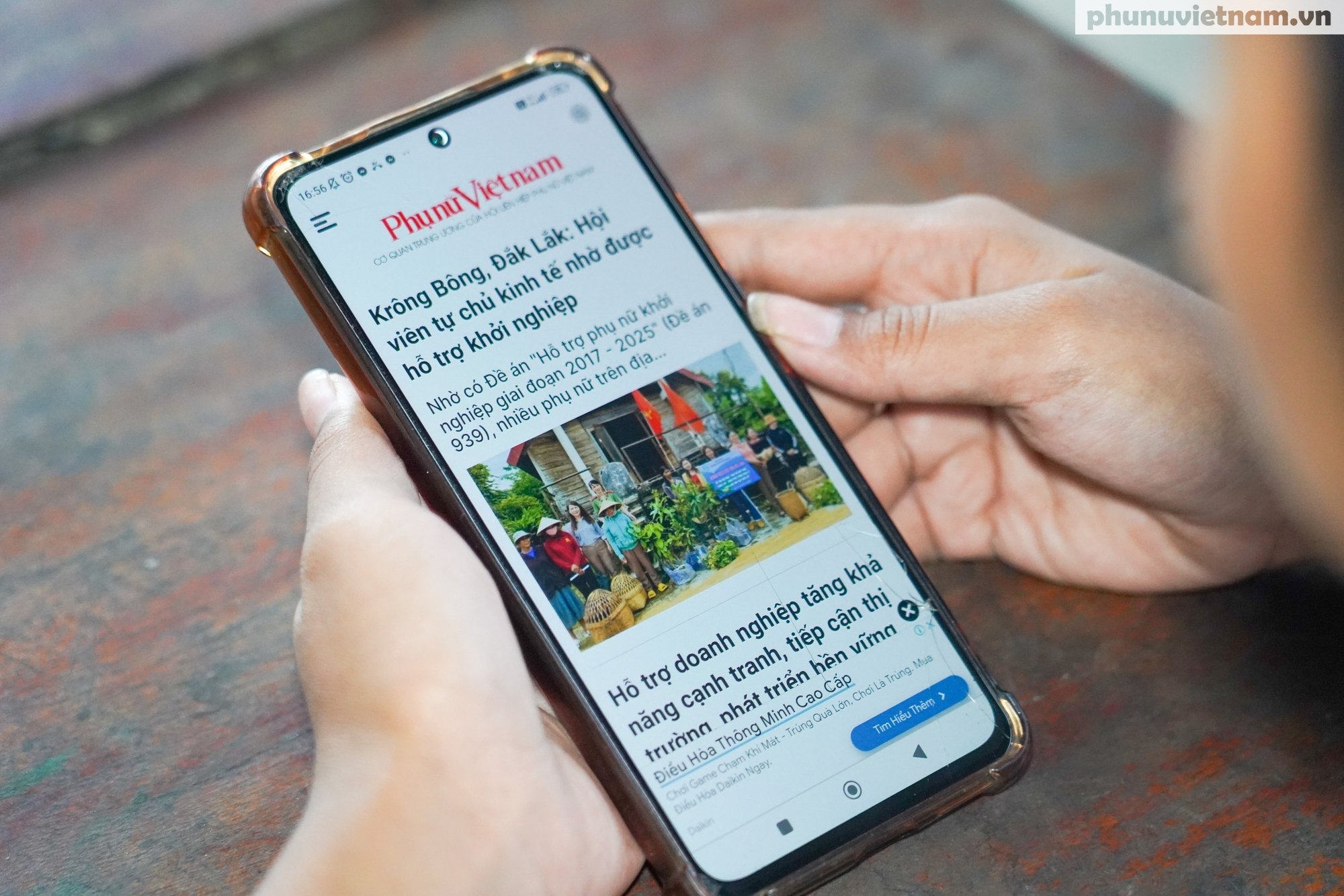
Ms. Hien uses her smartphone to read news and learn about farming and animal husbandry.
This is a great step forward, showing the change in the thinking and consumer behavior of the Chut people. From only knowing how to shop at small grocery stores in the village or having to travel far, they can now access the world of online shopping, looking for better quality products, more affordable prices, especially essential items for children. Using social networks also helps them connect with relatives and friends, breaking down geographical barriers and the inherent isolation of a remote community.
Free Internet Coverage and Expectations for a Digital Future
Mr. Nguyen Van Hai, Vice Chairman of Huong Lien Commune People's Committee, shared that the demand for internet usage among people is very high, especially among young people. He said that according to preliminary statistics, about 40% of Rao Tre village's population now knows how to use smartphones, mainly young workers.
"Buying SIM cards and registering for annual network packages is also popular, with a fee of about 500,000 VND/year - a significant expense for people in remote, low-income areas," said Mr. Hai. This shows that the Chut ethnic group is ready to invest in accessing information, despite many economic difficulties. This is a positive sign, affirming the development potential of Rao Tre village in the future.

Despite limited income, many people in Rao Tre village are still willing to invest in buying SIM cards and registering for internet connection, serving their studies and economic development.
To narrow the digital gap for the Chut ethnic group, on the occasion of Lap Lo Tet (August 10, 2024), the Internal Security Department of Ha Tinh Provincial Police coordinated with the People's Committee of Huong Lien Commune to install a "lifetime" free internet system at the Rao Tre village cultural house, serving 46 households/155 Chut ethnic people. This is part of the "free internet for ethnic groups" model on the Vietnam-Laos border, helping people access information, public services, law, health care, education and production skills, contributing to building new rural areas and sustainable poverty reduction.
Mr. Nguyen Van Hai affirmed that bringing the internet to Rao Tre village is an important step forward, helping people "exploit information to develop the economy, culture, society, preserve national identity, and improve people's knowledge". This is an opportunity for the Chut people to access knowledge, grasp science and technology, apply it to production and animal husbandry, contributing to increasing income.
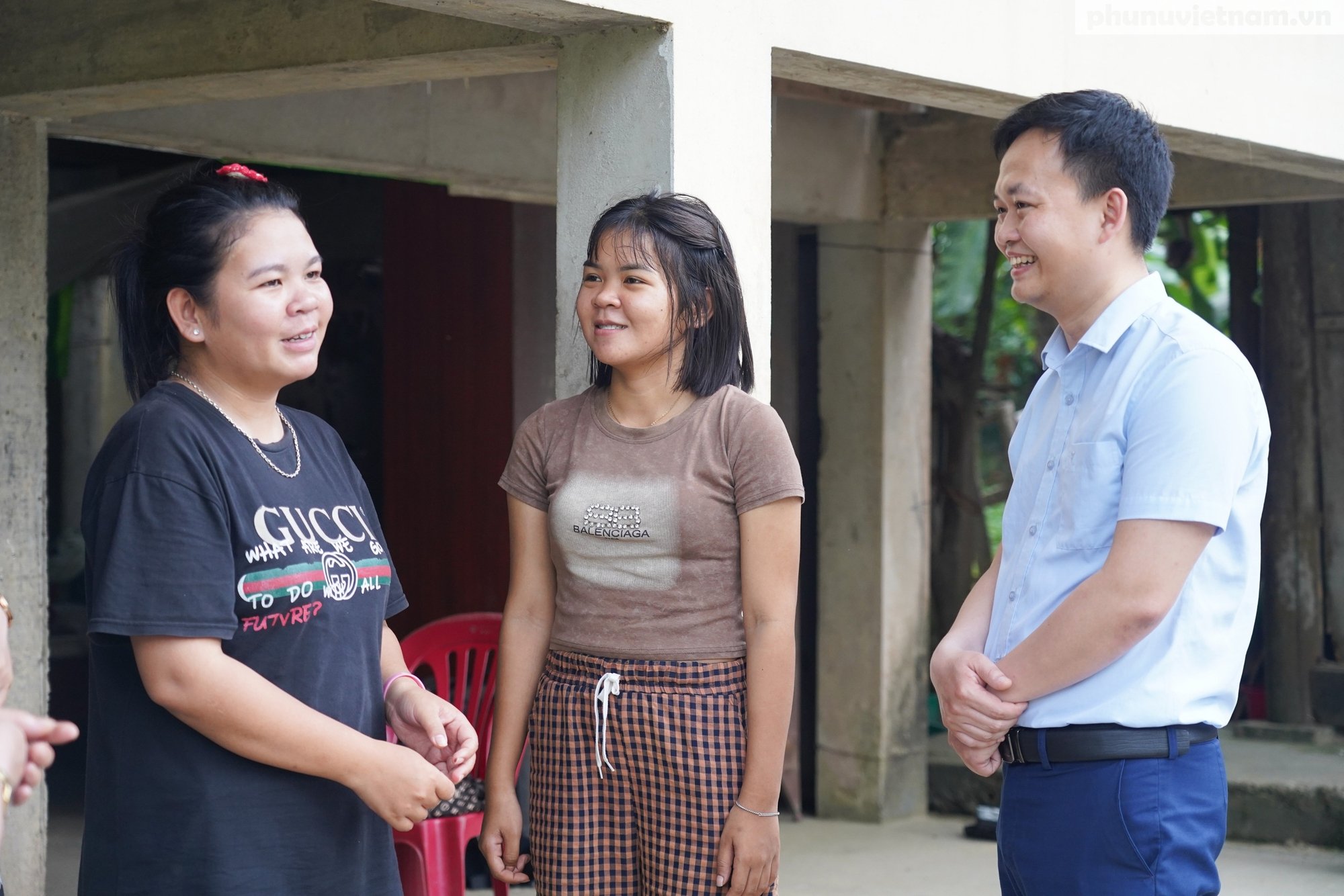
Mr. Nguyen Van Hai, Vice Chairman of Huong Lien Commune People's Committee (right), discussed with Chut women in Rao Tre village about the benefits of using smartphones and the internet in economic development and improving living standards.
However, besides the positive aspects, the "digitalization" of life in Rao Tre still faces many challenges. Mr. Hai also frankly admitted that the initial effectiveness of free internet coverage at cultural houses has not met expectations. "In reality, the effectiveness has not met expectations because the coverage is still limited, only concentrated at cultural houses - places where people do not always go. This somewhat reduces the practicality of this policy," Mr. Hai shared his concerns.
Providing free internet coverage at cultural houses is a commendable effort, but to be truly effective, it is necessary to expand coverage to each household and have solutions to support people to use the internet effectively and safely.
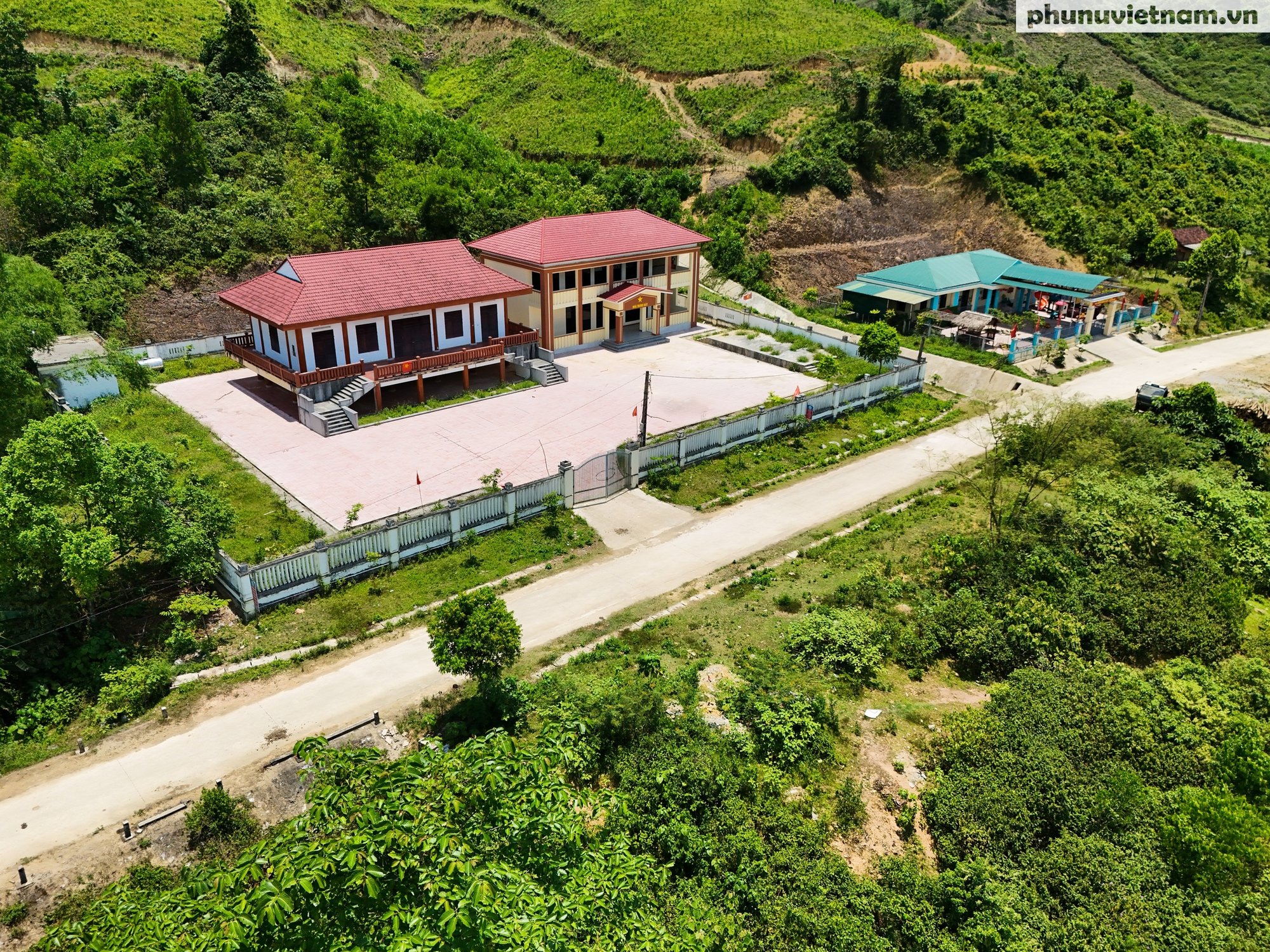
Rao Tre village cultural house - where free internet is installed "for life" to serve the Chut people, contributing to narrowing the digital gap in border areas.
Mr. Nguyen Van Hai emphasized that many people - especially the elderly - still have difficulty operating smart devices, do not know how to look up information or distinguish fake news from harmful news. Therefore, close coordination between the government, social organizations and network operators is needed to implement training programs suitable to the level and actual needs of the people.
Therefore, the "digital revolution" in Rao Tre village is not only a step forward in infrastructure, but also an important part of Project 6 "Communication and information poverty reduction", under the National Target Program on sustainable poverty reduction for the period 2021-2025.
The project aims to develop a technology platform, disseminate essential information - including in ethnic minority languages - to shorten the digital divide and raise awareness among the people. With proper investment and support from many sides, the life of the Chut people in Rao Tre will increasingly improve, especially women - who are persistently writing the digital journey in the middle of the forest.
Source: https://phunuvietnam.vn/dong-bao-chut-san-sang-dau-tu-de-tiep-can-thong-tin-20250614224824861.htm




![[Photo] Impressive image of 31 planes taking flight in the sky of Hanoi during their first joint training](https://vphoto.vietnam.vn/thumb/1200x675/vietnam/resource/IMAGE/2025/8/24/2f52b7105aa4469e9bdad9c60008c2a0)
![[Photo] The ceremonial artillery is ready to "fire" for the second parade rehearsal at My Dinh National Stadium.](https://vphoto.vietnam.vn/thumb/1200x675/vietnam/resource/IMAGE/2025/8/24/883ec3bbdf6d4fba83aee5c950955c7c)




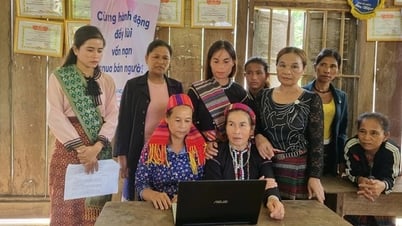
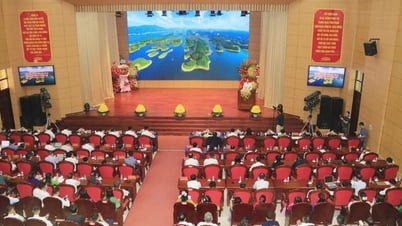
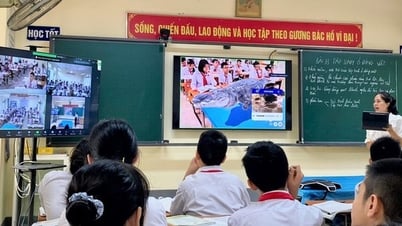


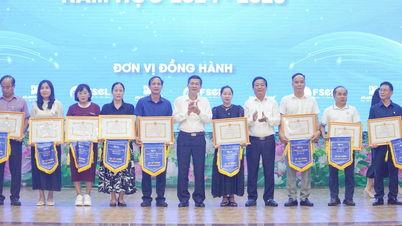



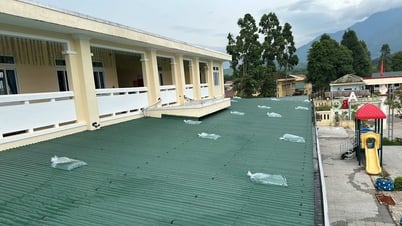
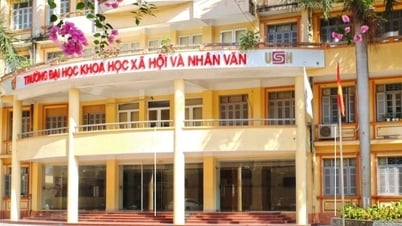









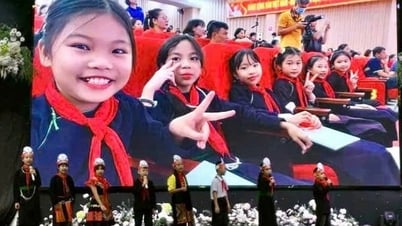


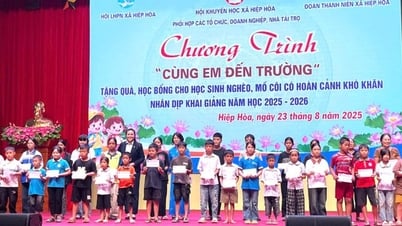













































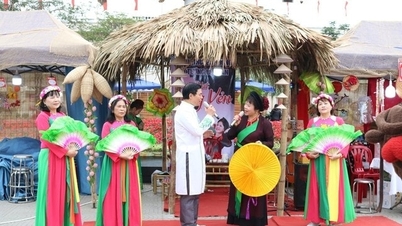




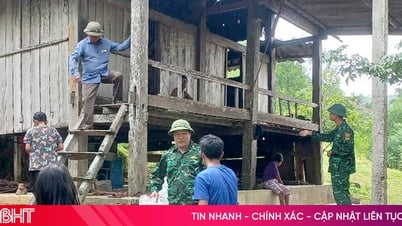

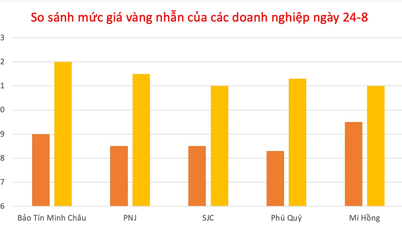
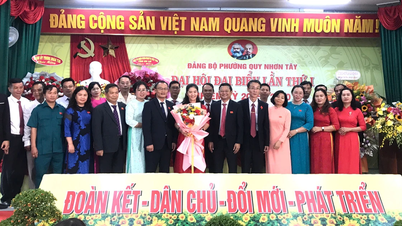
















Comment (0)